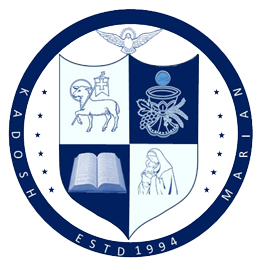Daily Bible Study – Immanuel experience…
LEARN and PRACTICE the WORD of GOD
How did we get the Bible?
It’s in the Bible, 2 Peter 1:20, 21 “You must understand that no prophecy of Scripture came about by the prophet’s own interpretation. For prophecy never had its origin in the will of man, but men spoke from God as they were carried along by the Holy Spirit.” The Bible is not the ideas of men; it is the word of God. God told those whom He chose what to say and write.
Who wrote the Bible?
Moses was the first person to write portions of Scripture while John, the disciple of Jesus, was the last. There are so many involved but the author of the Bible is Holy Spirit.
2 Timothy 3:16-17 says, “All Scripture is God-breathed and is useful for teaching, rebuking, correcting and training in righteousness, so that the man of God may be thoroughly equipped for every good work.” The Holy Bible affects human beings so profoundly, because “all” the Bible is “God-breathed.” It’s more than a nice collection of moral principles; it’s more than a great book; it’s an inspired document, God’s book. The prophets who wrote the Bible related what they saw and heard in human language, but their message came directly from God.
What purpose were the Scriptures written?
Romans 15:4 “Everything that was written in the past was written to teach us, so that through endurance and the encouragement of the Scriptures we might have hope.”
What are the Scriptures able to do for the person who believes them?
2 Timothy 3:15 “You know how, when you were a small child, you were taught the holy Scriptures; and it is these that make you wise to accept God’s salvation by trusting in Christ Jesus.”
What are the conditions to God’s promise that we will be able to understand divine things?
Proverbs 2:1-6 “My son, if you accept my words and store up my commands within you, turning your ear to wisdom and applying your heart to understanding, and if you call out for insight and cry aloud for understanding, and if you look for it as for silver and search for it as for hidden treasure, then you will understand the fear of the LORD and find the knowledge of God. For the LORD gives wisdom, and from his mouth come knowledge and understanding.”
Should we accept the entire Bible?
Jeremiah 26:2 “Give them the entire message; don’t leave out one word of all I have for them to hear.”
Who teach Bible?
John 16:13, 14 “But when he, the Spirit of truth, comes, he will guide you into all truth. He will not speak on his own; he will speak only what he hears, and he will tell you what is yet to come. He will bring glory to me [Jesus] by taking from what is mine and making it known to you.”
Psalm 119:105 “Your word is a lamp to my feet and a light for my path.” It’s in the Bible, “How can a young man keep his way pure? By living according to your word” (Psalm 119:9).
The Bible gives us wisdom. It’s in the Bible, Psalm 119:99, NIV. “I have more insight than all my teachers, for I meditate on your statutes.”
How should we study God’s Word?
Isaiah 28:9, 10 “Whom will he [God] teach knowledge? And whom will he make to understand the message? For precept must be upon precept, precept upon precept, line upon line, line upon line, here a little, there a little.”
Acts 17:11 “Now the Bereans were of more noble character than the Thessalonians, for they received the message with great eagerness and examined the Scriptures every day to see if what Paul said was true”.
On whom did Jesus pronounce a blessing? It’s in the Bible, Luke 11:28, NIV. “Blessed . . . are those who hear the word of God and obey it.”
Basic difference between Protestant version and Catholic version of Bible.
There are 66 books found in Protestant Bibles are also found in the Catholic Bible. Additionally, 7 more books are added in the Catholic version. The Catholic Bible contains a total of 73 books, 46 in the Old Testament. The additional books in the Catholic Bible are known as the Deuterocanonicals/Apocrypha or 2nd Cannon. They are Tobit, Judith, 1 Maccabees, 2 Maccabees, Wisdom, Sirach (Ecclesiasticus), and Baruch. The Catholic Bible also includes additions to the books of Esther and Daniel.
The most popular English translations of the Catholic Bible today are the New American Bible, the New Revised Standard Version Catholic Edition, and the New Jerusalem Bible. Aside from the inclusion of the Apocrypha, each of these Bible translations is reasonably good and accurate in how it renders the biblical text into English.
